Ben Landau (Class 2002) – speaks about having a “Creative Career”
Ben Landau (Class 2002) – speaks about having a “Creative Career”
Ben uses design research to analyse systems, and artistic methodologies to tamper with them. He constructs experiences, objects and performances which are interactive or invite the audience to participate.
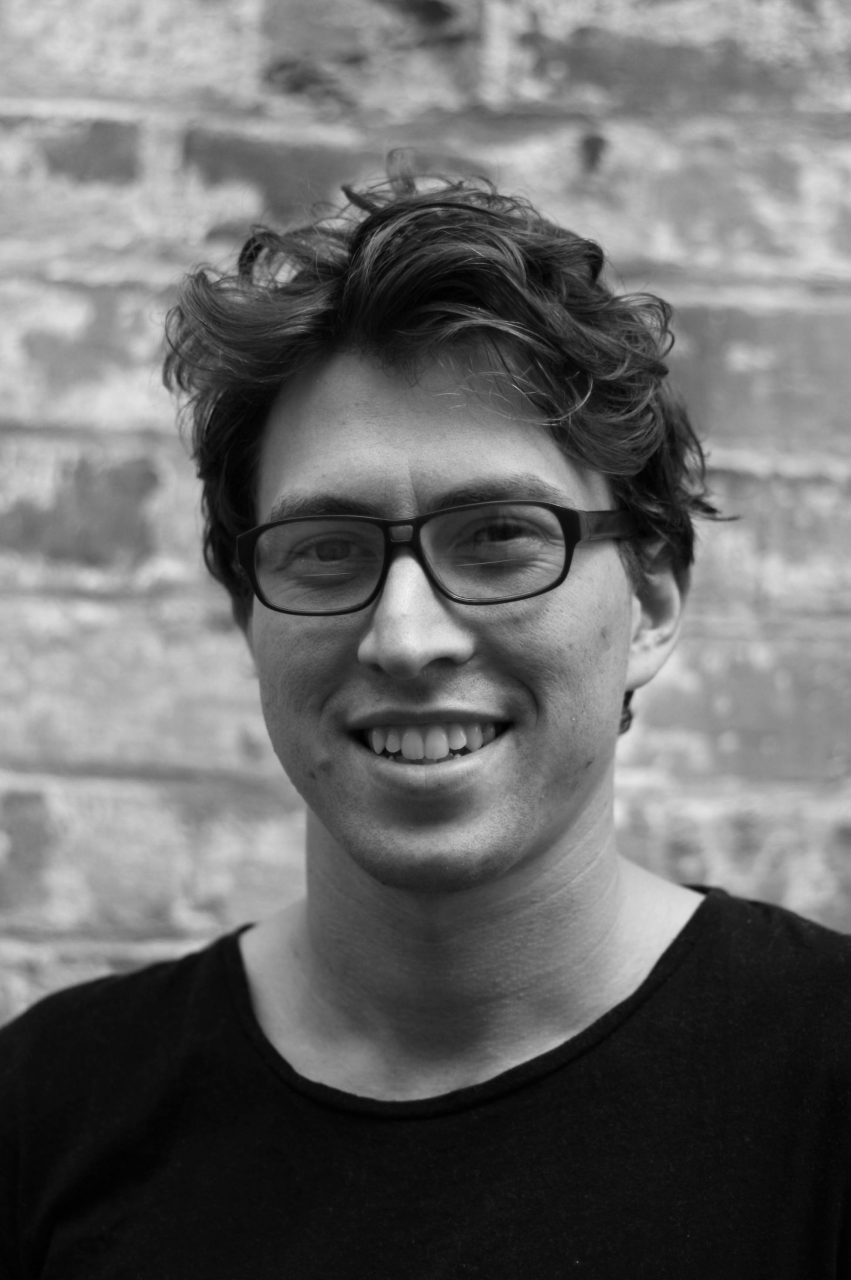
What did Ben have to say?
Why should those interested come along to Creative Careeers?
In school you’re exposed to all kinds of subjects, but the minute you leave school you start to decide how to define yourself through what you do and how you live your life. For many people, their work defines them. More than many other careers, a creative career will seep into other parts of your life. This is partly because creative work is all encompassing – it bleeds into how you live, who you relate to, what you do in your spare time, and your personal philosophy.
In school it can be hard to see where pathways might lead you, and by coming along to Creative Careers, you’ll see examples of where people’s careers have led them, as well as advice on how to get there.
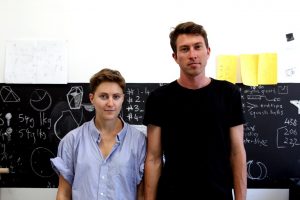
What are you working on at the moment?
I’m working on many facets of my practice. One is influenced more by design, and others by performance. In Design, I’m building a large 3d ceramic printer which will enable the studio I founded with my partner, Alterfact Studio, to make larger pieces for an exhibition next year. On the performance side, I’m preparing a couple of interactive theatre shows for touring around Australia, and also looking at pitching the work in the USA in January. You can see more at my website.
Did this passion begin while you were at Radford?
My passion for performance definitely began at Radford, but it has gone in a very different direction. Fifteen years after I graduated, I’m still using the same computer programs as in my Design class at Radford.
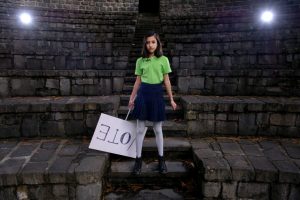
Have you got a favorite project you want to tell us about?
I just finished creating The Children’s Party – a legitimate political party run by kids. This interactive community co-created theatre piece takes some of the theoretical ideas and puts them into practice. It drives a wedge between art and politics, where this project could fall into either category. It was presented at Melbourne Fringe recently as a commissioned project, and is ready to tour around Australia.
What inspired your involvement with the Children’s Party? What are you hoping to achieve?
I think children and young people often have better ideas for the world or the future than adults. I wanted to achieve a clear and powerful voice of today’s youngest generation, who make up 20% of the Australian population, and yet are unable to take part in democracy.
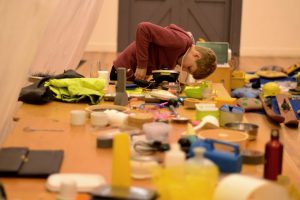
I enjoyed my virtual tour of the Museum of Future Past Antarctica. How did that come about? What do you enjoy about ArtPlay? What about the kids?
As in the rest of my practice, in MOFP Antarctica, I challenged children to think of alternative ways of being and thinking. Antarctica is interesting because it is naturally an ‘other’ place for all humans – having no indigenous population. Everyone there is a colonialist! This project came at a nexus of two other concepts, about tools for looking at the future, and ways of thinking of Antartica.
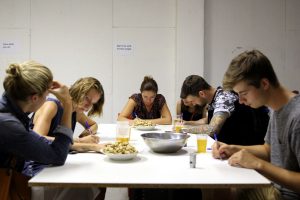 Fuelling the generation of concepts with beer and nuts is something you’ve done a few time now so I presume it been a success. Can you tell us about some of the more exciting concepts that have come out of these activities? How did you find integrating with Design Week earlier this year?
Fuelling the generation of concepts with beer and nuts is something you’ve done a few time now so I presume it been a success. Can you tell us about some of the more exciting concepts that have come out of these activities? How did you find integrating with Design Week earlier this year?
Concept Generation is a critical project which examines startup culture and how designers are driven to production. I decided to trade beer and peanuts for intellectual property to question what ideas we own, and how much they are worth. Peanuts are symbolic of little value (something is ‘worth peanuts’) and is also used as a treat for performing animals – famously monkeys and elephants. Beer references the perks which internet start up cultures use to encourage their employers to work harder and work longer hours. If work turns into a party – is it still work?
The concepts are an undeveloped element of this project – I’m thinking that next time, I’ll make it compulsory for me to take one of them to market. Last time, the best idea was ‘Pregnantea’ – a tea which gives men the same symptoms as pregnant women – for instance fatigue, nausea, food cravings, mood swings etc.
Related Collegians
Ben Landau
CLASS OF 2002

